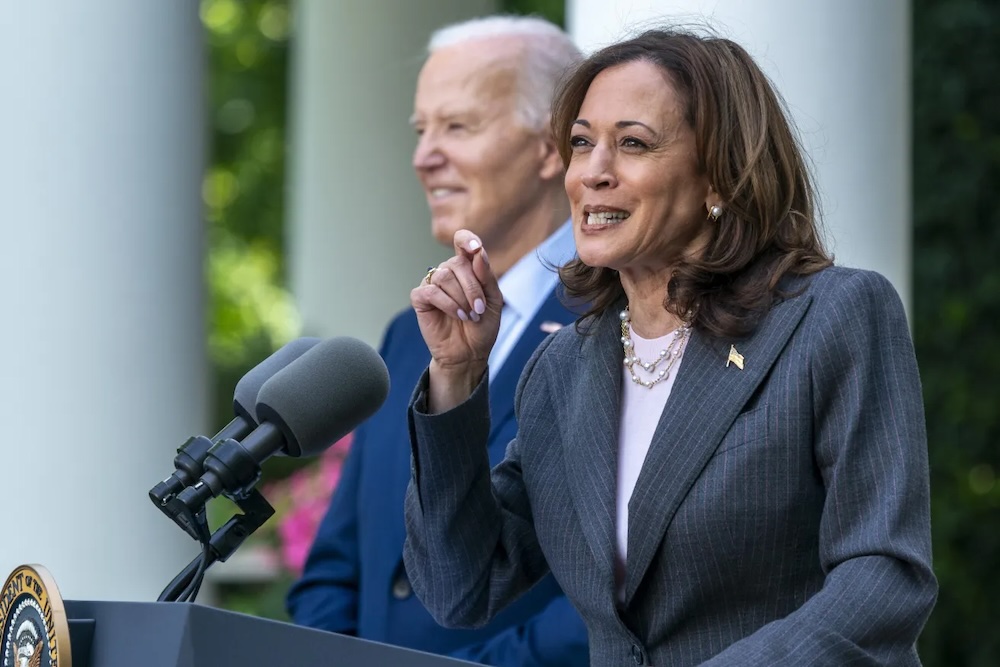Politics
JUST IN: Supreme Court BLOCKS Biden-Harris Policy Aimed At Swaying Key Voters

The Supreme Court dealt another blow to Joe Biden’s efforts to forgive student loan debt today, denying his administration’s request to lift a block on the Saving on a Valuable Education (SAVE) plan. Wednesday’s decision leaves millions of borrowers in uncertainty as they wait to see what happens next with the financial relief initiative aimed at getting college graduates out to vote.
The SAVE plan was part of Biden’s scaled-back approach to student debt relief after the Supreme Court previously rejected a more ambitious proposal that would have canceled over $400 billion in loans. However, these efforts have faced legal challenges, particularly from GOP-led states.
A federal appeals court in Missouri recently blocked the entire SAVE program while litigation continued in lower courts. In response, the Biden administration, through the Department of Justice, sought emergency relief from the Supreme Court. The request was handled by Justice Brett Kavanaugh, who has jurisdiction over Missouri.
🚨BREAKING: The Supreme Court unanimously upheld our court order BLOCKING @KamalaHarris and @JoeBiden' illegal student loan cancellation scheme.
This is a HUGE victory for the working Americans who won't have to foot the bill for the Biden-Harris Ivy League bailout. pic.twitter.com/iK8G1yORHt
— Attorney General Andrew Bailey (@AGAndrewBailey) August 28, 2024
As a result, millions of borrowers enrolled in the SAVE plan, which ties monthly payments to household size and earnings, remain uncertain about their financial future. The ongoing legal battles continue to cast doubt on the Biden administration’s ability to deliver on its promises of debt relief. The Supreme Court’s order revealed that the justices expect the Court of Appeals to deliver its own ruling on the matter.
Joe Biden introduced the SAVE plan after his broader student loan forgiveness proposal was struck down by the Supreme Court. The White House has touted SAVE as a significant relief measure, claiming it could reduce monthly payments to zero for some borrowers, slash costs by half for others, and save those making payments at least $1,000 per year. Additionally, borrowers with an original balance of $12,000 or less could see their remaining debt forgiven after making payments for just 10 years.
Despite these promises, Republican-led states have mounted numerous legal challenges against the plan. One of the most significant lawsuits, filed in the U.S. Court of Appeals for the Eighth Circuit in St. Louis, resulted in a broad hold on the loan forgiveness initiative. The court issued the injunction while it reviewed the case’s merits, effectively putting a nationwide freeze on the SAVE plan.
The Biden administration argued in its appeal that the Eighth Circuit Court overstepped its authority by issuing a sweeping injunction. The case may soon return to the Supreme Court, as the justices have signaled they expect the lower court to act quickly. Around 8 million people are already enrolled in the SAVE plan, benefiting from provisions that have already taken effect and allowed for reduced repayment amounts.
The $276 billion plan was a cornerstone of Biden’s 2020 campaign promises to progressive voters and is now on shaky ground. As the two legal challenges unfold in the courts, the future of the costly initiative remains in limbo. The White House’s efforts to push through the plan have faced repeated roadblocks, casting doubt on its ultimate fate.

